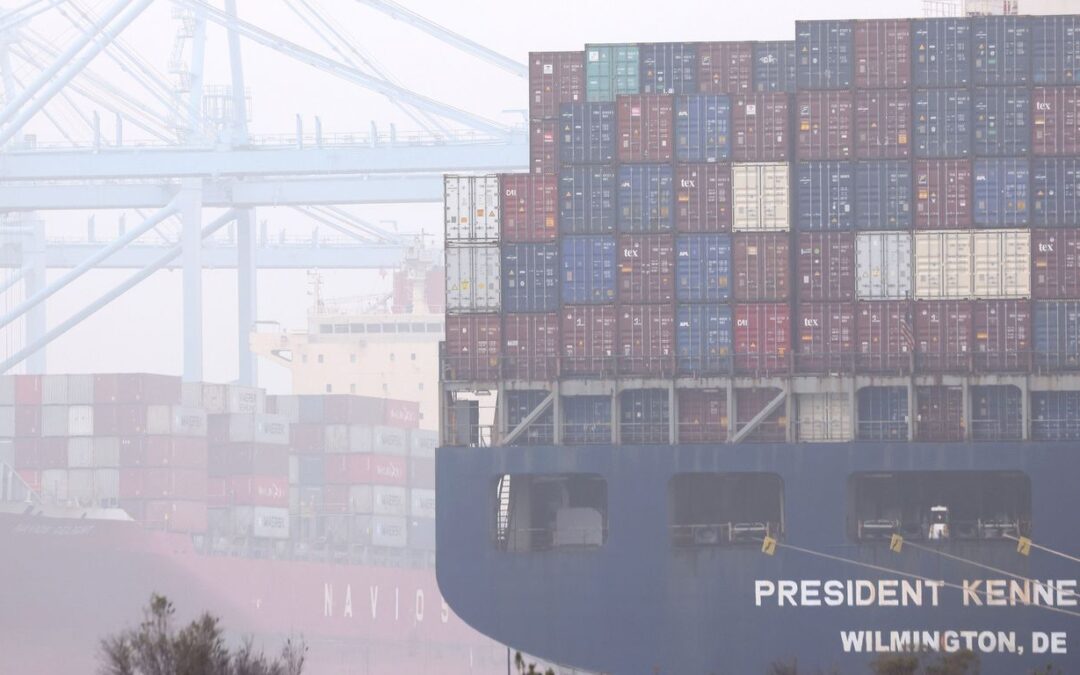House lawmakers voted 364 to 60 on Wednesday night to pass the The Ocean Shipping Reform Act of 2021, a bipartisan bill aimed at curbing the shipping container crisis.
The big picture: The bill could greatly reduce the practice of sending empty cargo boxes back to China, among other countries, and gives American exporters more opportunities to ship goods abroad.
- It would also give the Federal Maritime Commission (FMC) more power to penalize ocean carriers and require more public disclosure from carriers.
- The bill also adds “reciprocal trade” as one of the FMC’s missions, taking aim at reducing the U.S.’s trade imbalance and correcting what’s been perceived as unfair treatment of American exporters.
Why it matters: Supply chain players in the U.S. have been calling on Congress and the White House to do more to alleviate shipping and transportation costs and wait times.
- Last week, 22 Democrats urged House Democratic leadership to consider additional legislation to address supply chain disruptions.
Catch up quick: Ocean cargo carriers have been rejecting some U.S. exports since at least the fall of 2020, according to a CNBC investigation.
- Carriers notified exporters that empty containers would be prioritized, the investigation found, and that they would have to pay higher prices if commodities were shipped.
Be smart: Thanks to increased U.S. demand for goods from abroad over the course of the pandemic, shippers can make more from containers coming onshore than leaving — incentivizing the imbalance.
What they’re saying: The preference to take empty containers “back to Asia for a quick turn … has caused serious problems, not just conceptual — real dollars, real cents,” Rep. Dusty Johnson (R-S.D), a co-sponsor of the bill, said.
- Industry groups representing retail, agriculture and transportation sectors have supported the bill.
- The World Shipping Council, which represents carriers including Maersk, Hapag-Lloyd and other global shipping giants, said in a statement that the bill is a “political” expression of frustration that is not designed to nor can it fix supply chain problems.
What to watch: The legislation moves now to the Senate, which will consider its own version of the bill.
Axios’ Sophia Cai contributed to this story.


Comentarios recientes